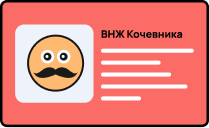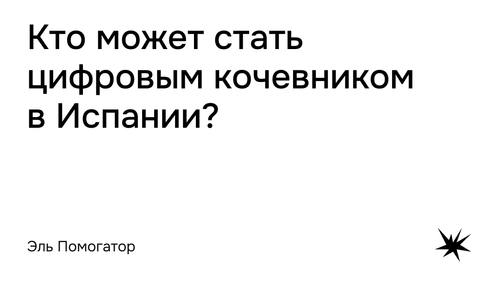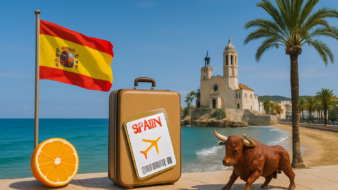Переезд в Испанию под ключ от 6 недель
Поможем оформить ВНЖ Испании для всей семьи с минимальной налоговой нагрузкой!
Подробнее
Получить бесплатную консультацию
От 0 €
В месяц налоговая нагрузка
От 6 недель
Срок получения ВНЖ
5 лет
До постоянного ВНЖ


Кто может стать цифровым кочевником в Испании?

Кто может стать цифровым кочевником?
Период пандемии изменил рабочие дни многих людей. То, что оставалось в тени до 2020 года, стало доступно и популярно: удаленная работа. При этом программы для тех, кто ушел в цифровой кочевой образ жизни, стали открываться по всему миру каждый год. Цифровые визы Nomad уже доступны в Европе, Америке, Азии и Африке. Более 40 государств приняли законы о цифровых кочевниках, и еще дюжина стран готовятся к экстрадиции: Сербия, Южная Корея и даже Япония, известная своей секретностью, ищут кочевников. Сегодня мы поговорим о том, кто может стать цифровым кочевником в Испании и какие шаги для этого нужно предпринять.Цифровой кочевник в Испании: попадаю ли я в эту категорию?
Для начала ответьте на следующие вопросы:- Работаю ли я в компании/индивидуальным предпринимателем за пределами Испании?
- Компания существует уже более 1 года?
- Работаю ли я удаленно?
- Действует ли мой контракт не менее 3 месяцев?
- Мой доход превышает 2520 евро?
Какие документы мне нужно собрать?
Ниже перечислены документы, необходимые наёмному сотруднику:- Контракт с работодателем, заключенный более 3 месяцев назад;
- выписка из Единого государственного реестра юридических лиц;
- письмо от компании о возможности удаленной работы;
- Копия диплома (если стаж менее 3 лет);
- Резюме;
- Свидетельство об отъезде;
- Справка о несудимости с апостилем;
- Штамп в паспорте по прибытии в Испанию или декларация о въезде;
- Анкеты по форме MI-T;
- Медицинская страховка;
- Оплаченная пошлина 73€
- Контракты с клиентами, заключенные более 3 месяцев назад (предпочтительно ООО/индивидуальное предпринимательство);
- Заявление из ЕГРИП о вашем ИП или справка о самозанятости;
- Выписка из Единого государственного реестра юридических лиц ваших клиентов;
- Письмо от клиента-индивидуального предпринимателя/самозанятого лица о разрешении на удаленную работу;
- Копия диплома;
- Резюме;
- Свидетельство об отъезде. Если его нет, индивидуальный предприниматель/самозанятое лицо прилагает рукописное письмо об обязанности зарегистрироваться в испанском социальном страховании в качестве местного предпринимателя;
- Справка об отсутствии судимости с апостилем
- Заполненное заявление об отсутствии судимости на испанском языке;
- штамп в паспорте по прибытии в Испанию или декларация о въезде;
- Анкеты по форме MI-T;
- Обязательство зарегистрироваться в системе социального страхования;
- Оплаченная пошлина 73€
Хорошо, а что если я хочу переехать со своей семьей?
Как заявитель, вы можете подать заявку вместе с членами семьи. Помимо увеличения пакета документов изменится и требуемый доход. Об этом мы поговорим ниже. Требуемый уровень дохода для цифрового кочевника:- 2520 евро (200% SMI*) на одного заявителя;
- 3465 евро (+75% SMI) для семьи из двух человек;
- 3780€ (+25% SMI) для семьи из трех человек
- 4095 евро (+25% SMI) для семьи из четырех человек
Давайте подведем итог
Всего существует 4 группы заявителей на получение цифровой кочевой визы и вида на жительство:- Работник принят на работу, работодатель — компания из Российской Федерации/Беларуси;
- Сотрудник по найму, компания входит в список стран, с которыми у Испании заключено соглашение о социальном обеспечении;
- Сотрудник по найму, компания входит в список стран, у которых нет соглашения о социальном обеспечении с Испанией;
- Индивидуальный предприниматель/самозанятый.


 23/07/2024
23/07/2024  Время чтения: 5 мин
Время чтения: 5 мин 





